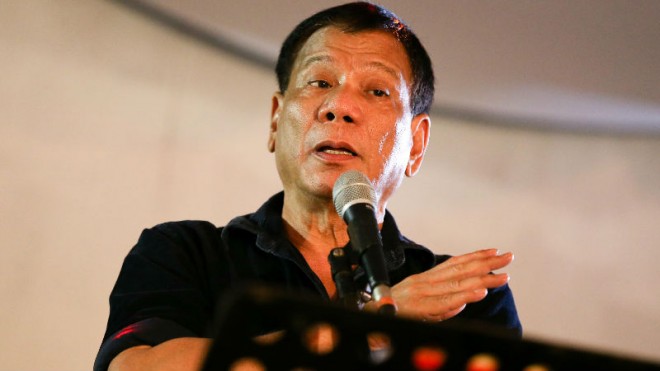THE UNORTHODOX Davao City Mayor Rodrigo Duterte, a fast-rising presidential contender, is being asked to unveil his economic platform so he can better pitch himself as the next CEO of the land.
In a research note dated Dec. 7, the Citigroup economist for the Philippines, Jun Trinidad, said Duterte could be put in the same basket of candidates that embodied good governance, like Grace Poe, Mar Roxas and Miriam Defensor-Santiago.
But beyond his anticrime zeal and “transformative capacity,” the economist noted that Duterte had yet to disclose his growth and investment plans and strategy except for the usual mantra that “development follows peace and order.”
“While this may be true for cities with limited boundaries and population, and less stifling bureaucracy, at the macro level the ‘upbeat’ parts may not necessarily result in a buoyant sum,” Trinidad said.
“Maybe it’s premature at this stage of the game but we believe Duterte eventually needs to articulate his broad national economic agenda and development goals close to his heart with a potential to create jobs and incomes while rendering his Philippine vision. This would help reshape his image as presidential material, a generator of policy inspiration/ideas while not just aspiring to be the new sheriff in town,” Trinidad said.
He does not buy the arguments that Duterte’s policy agenda would be immaterial as elected Presidents with different political convictions in the past tended to build on their predecessor’s achievements instead of using their term to correct past policy decisions—unless these remedies were urgent or in line with the present government’s mandate.
“This may be a valid observation, but for a political outsider like Duterte, local and foreign business groups would prefer his policy commitments made public to court broad-based business support and mitigate any downside from continuity risk,” the Citigroup economist said.
Soon after the elections in May 2016, the economist said the new government was expected to hit the ground running without the luxury of any long learning curve.
Trinidad said “a clear-cut policy agenda would be needed for the newly appointed Cabinet secretaries/political appointees across the bureaucracy to be in sync with their tasks and missions, and thus skirt policy confusion and indecisiveness at the onset.”
As to the potential impact on the stock market, which has been on an upswing for the seventh straight year this 2015, the Citi economist said the next President would need to get a strong mandate from 30 to 40 percent of the electorate—just like President Aquino—for the market to stage a strong relief rally.
